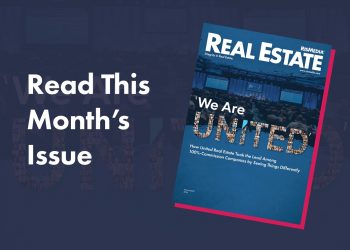The best technique for pricing a home when listing it for sale is setting the asking price just below a round number, according to recent research published by the Journal of Housing Research – an official publication of the American Real Estate Society (ARES).
“These findings will help real estate brokers and sellers of homes develop more informed listing and marketing strategies to better suit sellers’ needs,” said Ken Johnson, Ph.D., ARES publication director, real estate economist at Florida Atlantic University’s College of Business and co-developer of the Beracha, Hardin and Johnson Buy vs. Rent Index. “The results of this study take a lot of guess work out of the marketing of homes for real estate brokers.”
The study looked at 1,000 buyers in Virginia considering a pool of more than 370,000 listings. The researchers were able to determine the impact of “rounded pricing” listing strategies versus “just below pricing” listing strategies.
“Our study suggests that by using the just below pricing strategy sellers can price their home slightly higher without driving away potential buyers,” says Eli Beracha, Ph.D., of Florida International University, who conducted the study with Michael J. Seiler, Ph.D., of The College of William & Mary. “As a result, they end up selling their house for more.”
How does dropping your asking price ever so slightly impact the final outcome?
“On average, buyers are more attracted to a house priced at $199,000 than to a house priced at $200,000 and it appears that ‘just below’ pricing works out favorably for sellers in terms of their bottom line,” Beracha explains. “Based on our research, the ‘just below’ pricing strategy yields a selling price that is, on average, roughly 2.5 to 3 percent higher, $5,000 to $6,000 on a $200,000 house, compared with a rounded pricing listing strategy.”
While residential real estate agents widely disagree on the appropriate pricing strategy to use when listing residential real estate for sale, the researchers found that homebuyers more often prefer homes priced using a “just below” pricing strategy. This preference allows sellers to list their home for a higher initial listing price.
On the other hand, due to the demand effect, rounded priced homes typically have shorter time on the market and a lower discount relative to listing price. Their findings suggest that sellers’ ability to set higher listing prices for properties using a “just below” pricing strategy outweighs the lower discount and shorter time on the market associated with similar rounded priced strategy homes.
“We tested the age-old debate concerning the best technique to price a home when listing it for sale,” Seiler says. “We find that using a price just below a round number works best, particularly in connection to the left-most digit in the price. So, $199,000 works better than $200,000.”
For more information, visit www.fau.edu.










